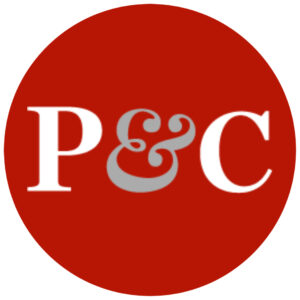Sutter Health, northern California’s largest hospital system, is paying $90 million to settle a whistleblower’s qui tam lawsuit that alleged Sutter engaged in Medicare Advantage fraud to inflate its Medicare reimbursements.
Sutter Health’s settlement, announced Aug. 30, is the largest by a hospital system in a qui tam case alleging Medicare Advantage fraud, and the second-largest alleged Medicare advantage fraud settlement reported to date.
The US Department of Justice, which joined the qui tam lawsuit, alleged that Sutter Health knowingly submitted inaccurate diagnosis codes for Medicare Advantage patients under its care. The unsupported diagnosis codes caused the government to make inflated payments to Sutter Health, according to DOJ.
The whistleblower lawsuit further alleged that Sutter Health took no corrective action after becoming aware of these unsupported diagnosis codes. When a Medicare Advantage plan is made aware that a diagnosis code is unsupported and inappropriate, the plan must submit delete codes to get rid of that unsupported diagnosis. Knowingly failing to delete an unsupported diagnosis code is a violation of the False Claims Act.
Under Medicare Part C, Medicare Advantage plans are paid on a capitated, or per-person, basis for each person enrolled in the plan. The amount that CMS pays for each person is based on the person’s unique “risk score,” which considers their demographic and health status. Medicare Advantage plans are responsible for reporting their members’ health status to CMS by submitting the diagnoses the members received from their healthcare providers.
Medicare Advantage plans generally are paid more for beneficiaries with more severe health diagnoses as the cost of their care entails greater risk. For example, diagnoses of diabetes or congestive heart failure included in a risk score would result in higher payments from CMS. Because many diagnoses correspond to greater payment, Medicare Advantage plans have an incentive to overreport diagnoses, including diagnoses that may be unsupported or exaggerated.
Examples of other Medicare Advantage plans and risk-adjustment fraud cases
Risk-adjustment fraud is a serious problem in the Medicare Advantage program. Phillips & Cohen has filed a number of qui tam cases on behalf of whistleblowers alleging risk-adjustment fraud.
Phillips & Cohen represented a doctor in a qui tam case alleging that Freedom Health, related corporate entities and its former chief operating officer defrauded Medicare by engaging in risk adjustment fraud and misstating the number of doctors and medical facilities that would be available to members of their Medicare Advantage plans. Freedom Health and the other defendants paid a total of $32.5 million in 2017 to settle the case. At the time, it was the largest settlement of false claims against a Medicare Advantage plan.
Last year, Kaiser Foundation Health Plan of Washington, previously known as Group Health Cooperative, paid $6.3 million to the government to settle a qui tam lawsuit filed by Phillips & Cohen alleging risk-adjustment fraud. DOJ has joined the whistleblower’s lawsuit against the remaining defendants in the case, Independent Health Association, Independent Health Corp., DxID LLC and the former CEO of DxID.
DOJ also intervened in a qui tam lawsuit against UnitedHealth Group, which Phillips & Cohen filed, that alleges UnitedHealth engaged in fraudulent use of risk-adjustment data through a chart review program for UnitedHealth’s Medicare Advantage plan, UnitedHealth Medicare Advantage.
In addition, DOJ has joined another whistleblower lawsuit filed by Phillips & Cohen, which is against Kaiser Permanente and certain Kaiser consortium members that also alleges risk-adjustment fraud.
[Learn more about risk-adjustment fraud and other types of Medicare Advantage fraud. ]
How to report Medicare Advantage fraud and earn rewards
Company insiders with thorough knowledge of billing practices and healthcare reimbursements are well situated to discover fraud by Medicare Advantage plans, but they may be at a loss of what to do about it.
The False Claims Act empowers individuals to report fraudulent healthcare practices by filing “qui tam” lawsuits against entities that are defrauding Medicare, Medicaid and other government healthcare programs. The law provides protection against job retaliation for whistleblowers as well as rewards based on the amount of money recovered as a result of a qui tam case.
After a qui tam lawsuit is filed, the government investigates the allegations to decide whether to join the case.
If funds are recovered for the government as a result of the qui tam lawsuit, whistleblowers are entitled to 15 percent to 30 percent of the recovery as a reward based on numerous factors, including the assistance provided by the whistleblower and their attorneys.
If you are aware of Medicare Advantage fraud and would like to talk to experienced whistleblower lawyers, please contact us for a free, confidential review of your matter.

